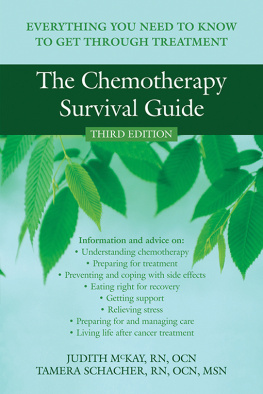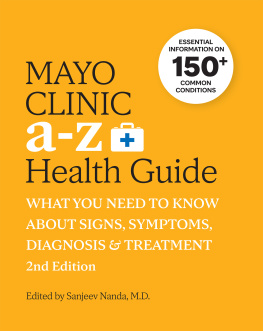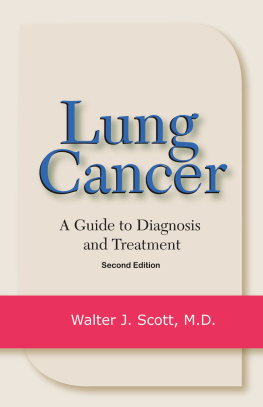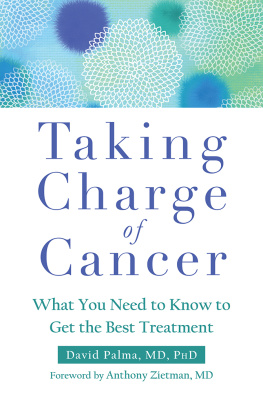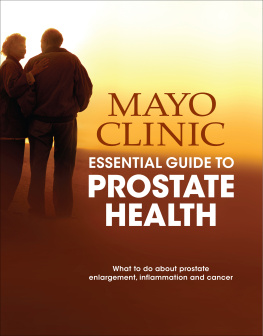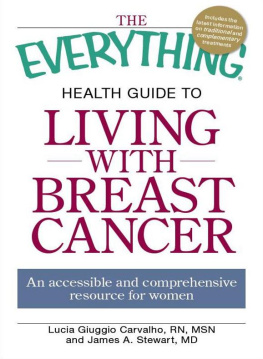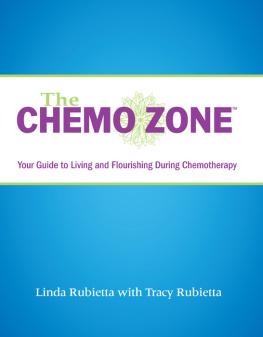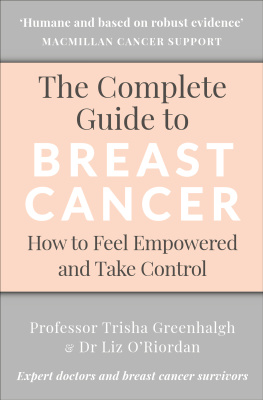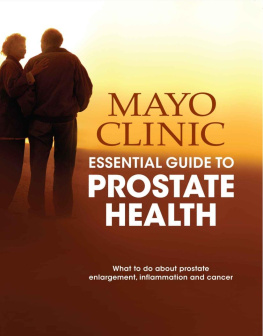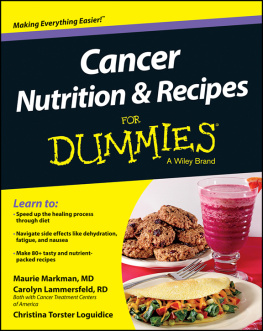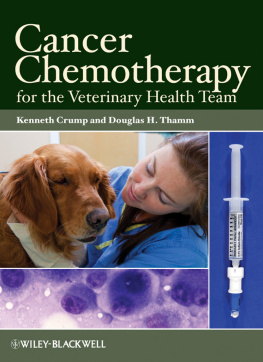Judith McKay, RN, OCN, received her degree from California State University, Hayward, and has been an oncology nurse involved in patient education for more than twenty-five years. She helped develop and taught chemotherapy orientation classes at the Alta Bates Summit Comprehensive Cancer Center in Berkeley, CA, where she currently works. McKay is coauthor of When Anger Hurts and contributed to the best-seller Self-Esteem.
Tamera Schacher, RN, OCN, MSN, is an oncology-certified nurse and a board-certified family nurse practitioner. She trained to become a registered nurse at the University of Nevada, Las Vegas, and received her master of science in nursing and family nurse practitioner degrees at Sonoma State University. For the past five years, she has worked at the Alta Bates Summit Comprehensive Cancer Center.

One of the best books available for teaching patients how to cope with the challenges of cancer treatment. Everything, including how to understand diagnoses, treatment plans, and emotional and social challenges, is beautifully written in laymans terms so the patient can become an active partner in his or her own treatment. A must-read.
Judith Shepherd, MSW, DSW, social worker at Alta Bates Summit Comprehensive Cancer Center
The previous edition of this comprehensive, well-written guide was enthusiastically received by patients, nurses, and physicians. This updated edition is even more valuable. It contains information relating to all aspects of a potentially difficult and frightening diagnosis. The suggestions for symptom management are practical and constructive.
Martha A. Tracy, MD, oncologist at Northern California Hematology Oncology Consultants
This new edition of TheChemotherapy Survival Guide provides patients with practical ways to empower themselves, from beginning preparations for treatment to issues of survivorship. Its down-to-earth philosophy is an invaluable guide for health care providers who educate cancer patients.
Quan Thai, RN, MSN, OCN, oncology nurse practitioner
Besides being well organized and easy to read, The Chemotherapy Survival Guide has been a great comfort to me during my chemotherapy. Its the book I reach for when I get those late-night worries and questions.
Susan Smith, cancer survivor
The Chemotherapy Survival Guide should be read by all patients diagnosed with cancer as well as their families. It offers valuable information about cancer and the various approaches to therapy in addition to practical advice. This book will help readers understand the decisions they face, how to cope with the disease, and the treatments they will undergo.
Michael Cassidy, MD, medical director at Alta Bates Summit Medical Center Cancer Program
Overall it is an excellent and comprehensive approach. The Chemotherapy Survival Guide is well written and organized in a way that I think will be readily understandable for people without medical backgrounds.
Raymond Liu, MD, hematology and oncology specialist
The information presented is easy to follow and understand. The book gives readers a detailed look into the cancer treatment process. It will help ease patients fears and their loved ones anxiety and stress, especially at the beginning of treatment.
LC, oncology nurse

Publishers Note
This publication is designed to provide accurate and authoritative information in regard to the subject matter covered. It is sold with the understanding that the publisher is not engaged in rendering psychological, financial, legal, or other professional services. If expert assistance or counseling is needed, the services of a competent professional should be sought.
Distributed in Canada by Raincoast Books
Copyright 2009 by Judith McKay and Tamera Schacher
New Harbinger Publications, Inc.
5674 Shattuck Avenue
Oakland, CA 94609
www.newharbinger.com
All Rights Reserved
Acquired by Jess OBrien; Cover design by Amy Shoup; Edited by Carole Honeychurch
Epub ISBN: 978-1-60882-652-0
The Library of Congress has cataloged the print edition as:
McKay, Judith.
The chemotherapy survival guide : everything you need to know to get through treatment / Judith McKay and Tamera Schacher. -- 3rd ed.
p. cm.
Includes bibliographical references and index.
ISBN-13: 978-1-57224-621-8 (pbk. : alk. paper)
ISBN-10: 1-57224-621-9 (pbk. : alk. paper)
1. Cancer--Chemotherapy--Popular works. I. Schacher, Tamera. II. Title.
RC271.C5M35 2009
616.994061--dc22
2008052321
For my daughter, Dana.
J.Mc.
To the memory of my grandmother, Alvena Jenny, and my friend, Therese Schoofs.
T.S.
Acknowledgments
We are grateful to the following people, who have been extremely helpful in developing this book: Michael Cassidy, MD; Cheryll Willin, MSN, AOCN; Eun Jeong Kim, Pharm.D.; and Ann Katz, RN, Ph.D. They shared their expertise and gave us valuable feedback on several chapters.
We appreciate the contributions of Tinrin Chew, RD, CSO, and Burton A. Presberg, MD, whose chapters are included in this edition.
We would also like to thank all our patients and their families, who taught us so much. Their courage, struggles, and victories were our inspiration.
Introduction
A survival guide is a book of directions that helps people cope with difficulties or unusual circumstances. It provides essential information, practical suggestions, and encouragement so that they can use their own resources and those in their environments to make it through the obstacles along the way.
Many people who are facing cancer therapy for the first time feel as if theyve been dropped off behind enemy lines during a war. They dont know the language or the terrain and dont know what to expect or whats expected of them. The hospital or clinic environment and the technical medical terminology are foreign. All these things add to the feeling of being lost in an alien world. A person recovering from the stress of recent cancer surgery may feel even more overwhelmed. And it may be difficult to get needed support if friends and family are dealing with their own fears and misconceptions about cancer and cancer-fighting treatments.
This book is meant to be a survival guide. It explains what chemotherapy is, how it works, and how it may affect you. It contains simple and understandable answers for many of the questions you may have. Most importantly, it gives you practical suggestions about what you can do to help yourself while receiving treatment. These are the same hints and suggestions that nurses give their patients based on their own experience and the experiences of the many people whove gone through these treatments.
Cancer-Fighting Treatments
Before chemotherapy, the most common treatment for cancer was surgery. But if the cancer was in an area that couldnt be surgically removed, or if some cancer cells had spread to other areas of the body, no effective treatment was available. In those days, surgery tended to be more radical, often removing large areas of healthy tissue in an attempt to catch the few microscopic cancer cells that might have escaped from the original tumor.
One distinguishing characteristic of most cancer cells is their tendency to divide frequentlytoo frequentlyin a way thats out of control. This tendency means that any drug or treatment that can damage cells in the dividing stage will have a far greater effect on cancer cells than on most normal tissue.

